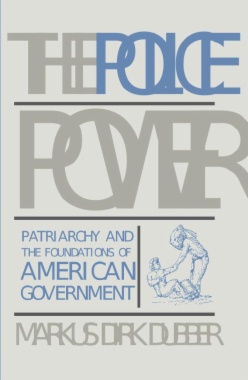Mention the phrase Homeland Security and heated debates emerge about state uses and abuses of legal authority. This timely book is a comprehensive treatise on the constitutional and legal history behind the power of the modern state to police its citizens.
Dubber explores the roots of the power to police—the most expansive and least limitable of governmental powers—by focusing on its most obvious and problematic manifestation: criminal law. He argues that the defining characteristics of this power, including the inability to accurately define it, reflect its origins in the discretionary and virtually limitless patriarchal power of the householder over his household. The paradox of patriarchal police power as the most troubling yet least scrutinized of governmental powers can begin to be resolved by subjecting this branch of government to the critical analysis it merits. Dubber shows us that the question must become how can the police power and criminal law together serve the goals of social equity that define and give direction to contemporary democratic societies? This book goes to the heart of this neglected but crucial topic.
- Table of Contents
- Acknowledgments
- Introduction: "The Power to Govern Men and Things"
- Part I. From Household Governance to Political Economy
- 1. Police as Patria Potestas
- 2. Blackstone's Police
- 3. Continental Police Science
- Part II. American Police Power
- 4. Policing the New Republic
- 5. Definition by Exclusion
- 6. Police Power and Commerce Power
- Part III. Police, Law, Criminal Law
- 7. The Forgotten Power and the Problem of Legitimation
- 8. The Law of Police: Internal and External Constraints
- 9. Lochner's Law and Substantive Due Process
- Conclusion: Toward a Critical Analysis of Police and Punishment
- Index

